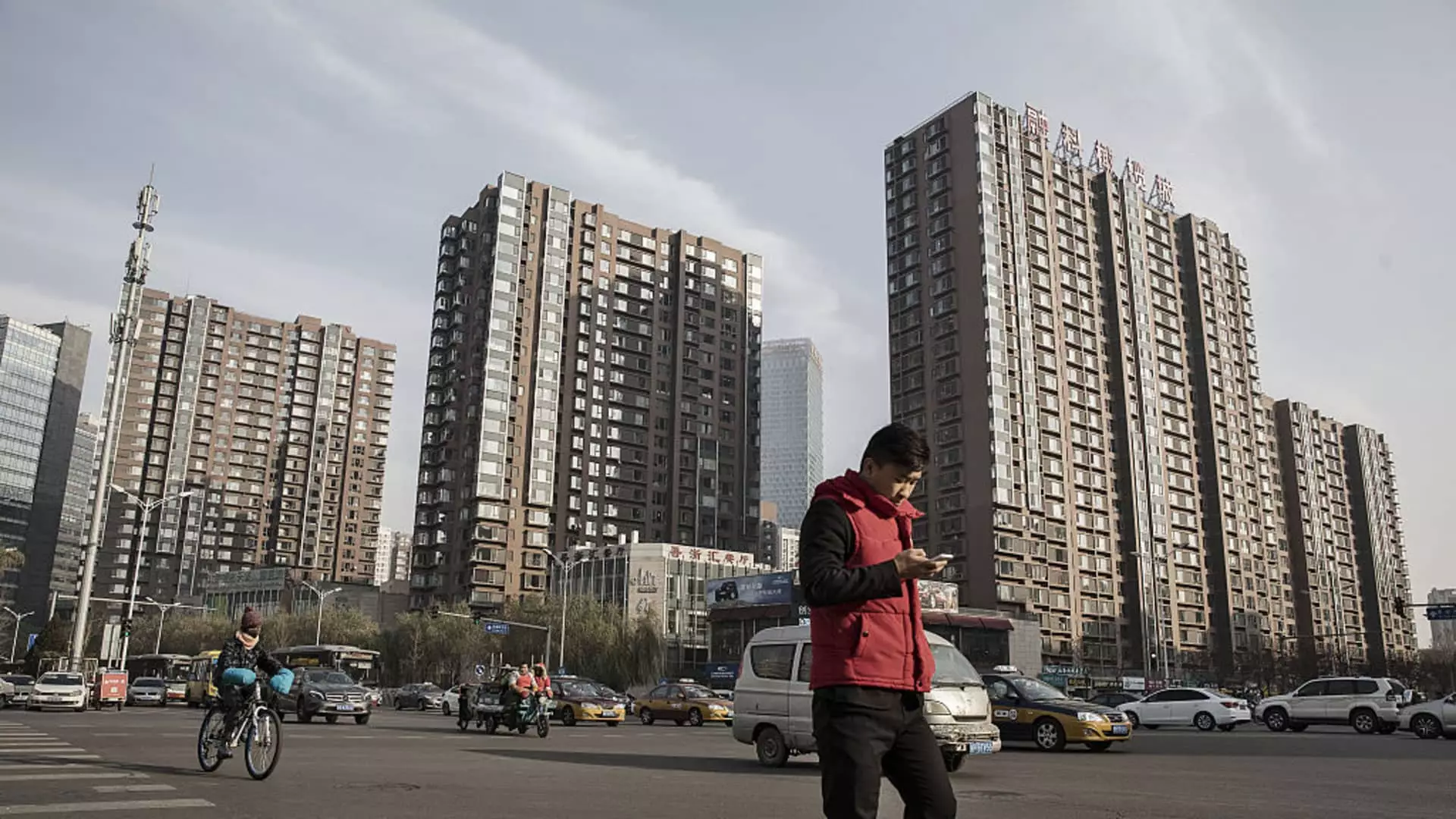In a decisive maneuver aimed at reigniting its languishing real estate sector, China has pledged considerable financial backing for select property developers—those on its “whitelist.” This initiative, communicated by the country’s housing ministry, is part of a broader strategy to stimulate economic recovery amidst declining growth rates and a struggling housing market. The Minister of Housing and Urban-Rural Development, Ni Hong, alongside other key financial officials, has outlined plans for lending up to 4 trillion yuan (approximately $561.8 billion) to these prioritized developers. The implications of this policy shift are significant, particularly considering the real estate sector’s pivotal role in China’s economy.
As part of the coordinated effort to revitalize the real estate sector, approximately 2.23 trillion yuan in loans have already been disbursed to whitelisted developers. Officials are optimistic that this figure will escalate to exceed 4 trillion yuan by year-end. This commitment suggests a readiness on the part of the Chinese government to intervene directly in what has become a precarious economic landscape since the onset of stricter regulations on borrowing and debt levels among property developers in 2021.
The recent whirlwind of policy announcements from high-level government meetings indicates a clear intention to halt potential collapse in this vital sector. In previous months, Ni Hong had previously suggested that financially unstable developers should either face bankruptcy or undergo significant restructuring—an approach that has evolved into a more supportive one as the realities of economic slowdown have set in.
The response from the stock market following these announcements has been telling. Following reports of increased lending and economic stimulus, there was a notable surge in Chinese property stocks. For instance, the Hang Seng Mainland Properties Index saw an uptick exceeding 2%, with further gains observed in the CSI 300 index. Such movements reflect a cautious resurgence of investor confidence amidst a backdrop of market volatility and uncertainty.
During a week marked by fluctuating equities, the announcements from the central bank and the housing ministry provided a much-needed injection of optimism. Comments made by Pan Gongsheng, the Governor of the People’s Bank of China, further spurred market reactions. His reduction of the reserve requirement ratio and the easing of down payment requirements for second homes are positioned as strategic moves to enhance liquidity and consumer engagement in the housing market.
Beyond direct financial measures, local governments have been proactive in adjusting policies to stimulate real estate transactions. Over 50 cities have rolled out their respective plans to bolster the market, including the complete removal of purchase restrictions in Guangzhou and alterations to financing conditions in prominent cities such as Beijing and Shanghai. This wave of policy reform signals a recognition among officials that previous measures had fallen short of delivering substantial market revitalization.
However, despite these encouraging developments, challenges remain daunting. According to data from the National Bureau of Statistics, new home prices witnessed their sharpest decline in over nine years, highlighting underlying consumer reservations about the housing market. The drop in home values and the substantial reduction in sales highlight an urgent need for a sustainable recovery strategy. Amidst these indicators, the sentiment among potential homebuyers continues to waver; many remain skeptical after years of volatility and unfulfilled promises.
The long-term health of the real estate sector—once a linchpin of China’s economic framework—is under scrutiny as it grapples with the consequences of prior policy measures aimed at curtailing excessive debt. As developers continue to face the repercussions of defaults and unfinished projects, restoring faith in the market will be a colossal challenge.
China’s renewed commitment to bolster its real estate sector represents a critical inflection point in its ongoing economic narrative. While the financial support and recent policy adjustments are steps in the right direction, it remains to be seen whether they will effectively spur a comprehensive recovery. The interplay between government intervention and market dynamics will shape the forthcoming landscape of Chinese real estate. For now, stakeholders—including investors, developers, and consumers—will watch closely as the government navigates these turbulent waters, hopeful for a stable and prosperous real estate environment.

